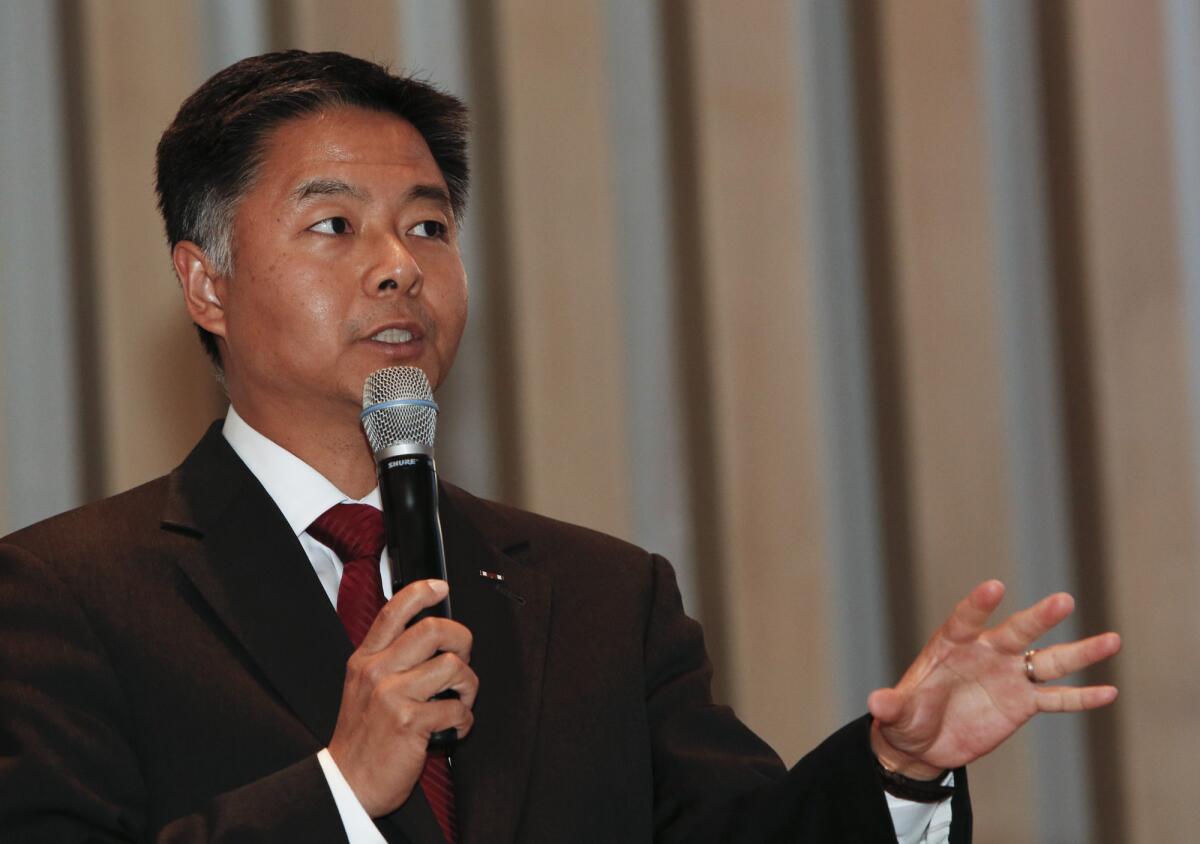California Supreme Court blocks Citizens United measure from ballot

- Share via
Reporting from Sacramento — The California Supreme Court on Monday halted state action on a non-binding ballot measure seeking voter opinion about a landmark U.S. Supreme Court campaign finance decision known as Citizens United, a move supporters and opponents agree will remove the measure from the November ballot.
The court ordered Secretary of State Debra Bowen to hold off placing the measure on the ballot pending court review. The measure, which asks Californians if Congress should overturn the landmark U.S. Supreme Court campaign finance decision, would have no binding legal effect, even if approved by the voters.
Opponents argued the measure is not valid because it would not change state law. Justices asked for additional briefings on the matter on Sept. 10. In the meantime, the secretary of state’s office has directed staff to remove the measure, designated as Proposition 49, from voter information guides, which go into production this week.
“I believe, based on the Supreme Court’s order, that this ballot measure will not be on 2014’s ballot,” said Sen. Ted Lieu (D-Torrance), author of the measure. “I am confident we will prevail on the merits and it will be on the 2016 ballot.”
Lieu said he was disappointed by the court’s order.
“In effect, the California Supreme Court has now silenced the voters of California on a very important issue for this election,” Lieu said.
Opponents, meanwhile, cheered the court’s intervention.
“We’re very pleased. We think the court recognizes ... that this is a substantively meaningless measure, designed to serve only one purpose and that is to clutter up the ballot box,” said Jon Coupal, president of the Howard Jarvis Taxpayers Assn., the anti-tax group that sued to kick the measure off the ballot.
“The Legislature does indeed have broad legislative powers -– we certainly don’t contest that -– but putting a public opinion poll on the ballot is not part of that legislative power. It’s just not,” Coupal said.
Follow @melmason for more on California government and politics.
More to Read
Sign up for Essential California
The most important California stories and recommendations in your inbox every morning.
You may occasionally receive promotional content from the Los Angeles Times.











